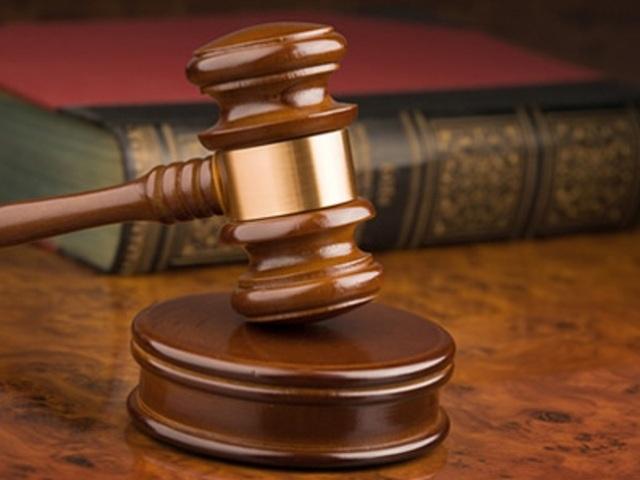
Premiere Academy: Where Passionate Advocacy Meets the Risk of Defamation
By Haroon Aremu Abiodun
In this age of activism and social justice, certain issues demand our attention, particularly the growing blur between genuine advocacy and defamation. While activism serves as a powerful tool to expose wrongdoing and demand accountability, there are instances where individuals and groups misuse public influence to advance personal agendas. The recent defamation case involving Premiere Academy, Lugbe, Abuja, and gender activist Lemmy Ughegbe is a stark reminder of how activism can be weaponized to destroy reputations through unverified claims and sensationalism.
Premiere Academy, a reputable institution in Abuja, found itself embroiled in a media storm following allegations made by Ughegbe regarding the tragic death of 14-year-old Miss Keren-Happuch Aondodoo. Ughegbe repeatedly claimed that the student was raped, that a condom was left inside her, and that this led to sepsis and hyperglycemia, ultimately causing her death on June 22, 2021. These allegations, widely circulated across media platforms and public forums, painted the school in a damning light, sparking public outrage and severely damaging its reputation.
Once regarded as a citadel of learning dedicated to nurturing young minds, Premiere Academy is now viewed by some as a place of tragedy and negligence. This shift in perception has had tangible consequences, as evidenced by the steady decline in student enrollment. However, as the legal proceedings unfold, the credibility of Ughegbe’s claims has come under scrutiny.
Premiere Academy has filed a N500 million defamation lawsuit against Ughegbe, asserting that his statements were not only false but also deliberately orchestrated to tarnish the school’s image. In a significant development, a High Court in the Federal Capital Territory (FCT), presided over by Justice Kayode Agunloye, admitted eight crucial exhibits submitted by the Academy to substantiate their claims. These exhibits include:
1. A flash drive containing video footage of Ughegbe addressing 5,000 lawyers at the 2021 Law Week of the Nigerian Bar Association (NBA), where he allegedly made defamatory remarks about the school.
2. Three years’ worth of admission registers, showing a significant decline in student enrollment following the negative publicity generated by Ughegbe’s allegations.
3. News articles from reputable outlets such as *Daily Independent* and *The Sun*, which Ughegbe allegedly used to disseminate unverified reports.
4. A legal warning letter from Chief Adegboyega Awomolo (SAN), urging Ughegbe to cease making false accusations, along with his response through his legal representative, Johnbull Adaghe.
Despite objections from Ughegbe’s legal team regarding the admissibility of some documents, the court ruled in favor of Premiere Academy, admitting the exhibits as valid evidence. This ruling underscores the gravity of the activist’s actions and the potential consequences of spreading misinformation under the guise of advocacy.
While activism plays a critical role in holding institutions accountable, its misuse is both unwholesome and dangerous. In the case of Premiere Academy, the damage inflicted by Ughegbe’s allegations extends far beyond reputational harm. The significant drop in student enrollment has had ripple effects, including financial strain, disruption of operations, and distress for staff and parents.
False reports, much like fake news, do not merely harm institutions; they also undermine the credibility of those who peddle them—whether social media influencers, media outlets, or activists. When falsehoods are weaponized in the name of activism, the entire advocacy space becomes tainted, making it harder for genuine victims to have their voices heard.
This case serves as a wake-up call for regulatory bodies, the media, and the public to exercise greater scrutiny when dealing with allegations of misconduct. While it is essential to amplify the voices of the oppressed, it is equally crucial to ensure that accusations are backed by verifiable evidence. Sensationalism should never take precedence over factual accuracy.
Authorities must implement stricter measures to prevent the spread of false allegations. Media platforms should be held accountable for publishing unverified claims, and activists must face legal repercussions if they deliberately spread misinformation. The judiciary also has a role to play in ensuring that justice prevails—not just for alleged victims, but also for those who fall prey to false accusations.
As the Premiere Academy defamation case continues, it serves as a cautionary tale about the dangers of unchecked activism. The public must learn to differentiate between genuine advocacy and malicious propaganda. While society must continue to support real victims and fight against injustices, it must also remain vigilant against those who exploit activism for personal or financial gain.
The court has scheduled the next session for March 18, during which Ughegbe’s video clip featuring the alleged defamatory remarks will be publicly presented. The cross-examination of witnesses by his legal team is also expected to provide further insights into the case.
While Ughegbe remains defiant, describing the lawsuit as an attempt to silence him, the ongoing legal proceedings will determine whether he was truly advocating for justice or deliberately engaging in character assassination. Whatever the outcome, this saga highlights the urgent need for responsible activism and factual reporting. Advocacy remains a cornerstone of democratic societies, but its credibility must not be compromised or distorted by individuals or groups.
As this case unfolds, one thing is clear: justice must be rooted in truth, not manipulation.
Haroon Aremu Abiodun is a Public Affairs Analyst based in Kano. He can be reached via [email protected]
